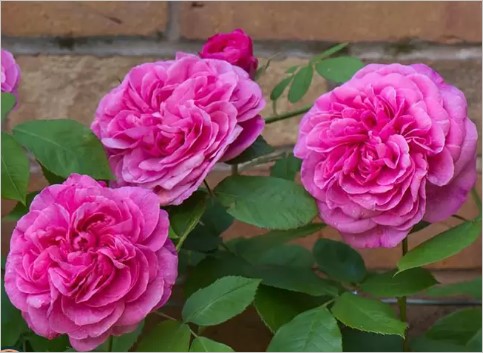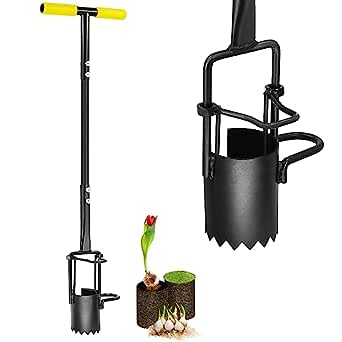In an age where agriculture is dominated by hybrid and genetically modified organisms (GMOs), heirloom seeds stand as a testament to the beauty and resilience of biodiversity. These seeds, often passed down through generations, offer more than just a means to grow food—they carry history, culture, and a promise of sustainability. Understanding and utilising heirloom seeds can transform your gardening or farming experience, connecting you to the past while promoting a healthier future.
What Are Heirloom Seeds?
Heirloom seeds are open-pollinated seeds that have been preserved and passed down through generations. Unlike hybrid seeds, which are produced by cross-pollinating two different plant varieties to create a new plant with specific traits, heirloom seeds come from plants that have been grown and selected for their desirable characteristics over many years. These seeds are often more than 50 years old, though some definitions consider any variety developed before the widespread use of commercial hybrids in the 1940s as heirloom.
The Value of Heirloom Seeds
Genetic Diversity
One of the most significant benefits of heirloom seeds is their contribution to genetic diversity. Modern agriculture often relies on a limited number of plant varieties, which can lead to vulnerabilities. If a disease or pest affects one variety, it can potentially devastate entire crops. Heirloom seeds, on the other hand, come from a wide range of genetic backgrounds, providing a buffer against such threats.
Superior Flavour and Nutrition
Heirloom seeds are often selected for their flavour and nutritional content rather than their ability to withstand long-distance shipping or uniform appearance. As a result, heirloom fruits and vegetables frequently offer richer tastes and higher nutritional value compared to their commercial counterparts. For example, an heirloom tomato might have a more complex flavour profile than a store-bought hybrid tomato, which is typically bred for durability and uniformity.
Cultural and Historical Significance
Each heirloom seed carries a story. These seeds are often tied to specific cultures, regions, and families, representing a living history of human agriculture. Growing heirloom varieties can connect gardeners to the agricultural practices and traditions of their ancestors. This cultural and historical preservation is invaluable, as it keeps alive the knowledge and experiences of past generations.
Growing Heirloom Seeds
Getting Started
Starting with heirloom seeds is relatively straightforward. Here are some steps to help you begin:
- Choose Your Seeds: Research and select heirloom varieties that are well-suited to your climate and soil conditions. Many seed companies and online platforms specialise in heirloom seeds, offering a wide range of options.
- Prepare Your Soil: Heirloom plants thrive in well-prepared soil. Ensure your garden bed or containers have nutrient-rich soil with good drainage. Amending the soil with compost or organic matter can enhance fertility and structure.
- Planting: Follow the specific planting instructions for each variety. Heirloom seeds, like all seeds, require proper spacing, depth, and timing to germinate and grow successfully.
- Care and Maintenance: Heirloom plants may require more attention than modern hybrids, particularly in terms of pest and disease management. Use organic methods such as crop rotation, companion planting, and natural pest deterrents to maintain plant health.
Saving Seeds
One of the most rewarding aspects of growing heirloom seeds is the ability to save seeds for future planting. This practice not only preserves the genetic lineage of the plants but also allows gardeners to select the best-performing plants each season, gradually adapting the variety to their specific growing conditions. Here’s how to save seeds:
- Select the Best Plants: Choose the healthiest and most productive plants from which to save seeds. This ensures that the desirable traits are carried forward. Ancestry Seed Bank has a great selection of heritage seeds.
- Harvest Seeds at the Right Time: For many vegetables, this means allowing the fruit to fully ripen on the plant. For others, like leafy greens, you may need to let the plant flower and set seed.
- Clean and Dry the Seeds: After harvesting, clean the seeds to remove any pulp or debris. Dry them thoroughly to prevent mould and ensure longevity.
- Store Properly: Store seeds in a cool, dry place, ideally in airtight containers. Properly stored seeds can remain viable for several years.
The Environmental Impact of Heirloom Seeds
Promoting Biodiversity
Heirloom seeds play a crucial role in promoting biodiversity. By growing a variety of heirloom plants, gardeners contribute to a more diverse ecosystem. This diversity can attract beneficial insects, support a wider range of wildlife, and improve soil health. Diverse plantings can also lead to more resilient gardens, capable of withstanding pests, diseases, and extreme weather conditions.
Reducing Dependence on Commercial Seeds
Commercial seed production often involves intensive agricultural practices, including the use of synthetic fertilizers, pesticides, and large-scale monocultures. By growing and saving heritage seeds, gardeners can reduce their reliance on these commercial systems. This supports more sustainable and environmentally-friendly agricultural practices.
Challenges and Considerations
While heritage seeds offer numerous benefits, there are also challenges to consider:
- Susceptibility to Pests and Diseases: Some heirloom varieties may be more vulnerable to pests and diseases than modern hybrids. This requires careful management and potentially more hands-on gardening.
- Lower Yields: Heirloom plants may produce lower yields compared to hybrid varieties bred specifically for high productivity. This can be a consideration for gardeners with limited space or those needing to maximize food production.
- Adaptation Period: It may take a few growing seasons for certain heirloom varieties to fully adapt to your specific garden environment. Patience and persistence are key.
Conclusion
Heirloom seeds offer a unique and valuable connection to our agricultural heritage. By choosing to grow these seeds, gardeners and farmers can enjoy superior flavours, contribute to genetic diversity, and promote sustainable practices. While there are challenges associated with heirloom gardening, the rewards far outweigh the difficulties. Embracing heirloom seeds is not just about growing plants; it’s about preserving history, supporting biodiversity, and creating a more resilient and flavourful future. Whether you are an experienced gardener or a novice, incorporating heirloom seeds into your garden is a meaningful and enriching endeavour.
For quality heirloom seeds fruits and vegetables, check out Ancestry Seed Bank and save 30% with this exclusive discount code: ASB30













